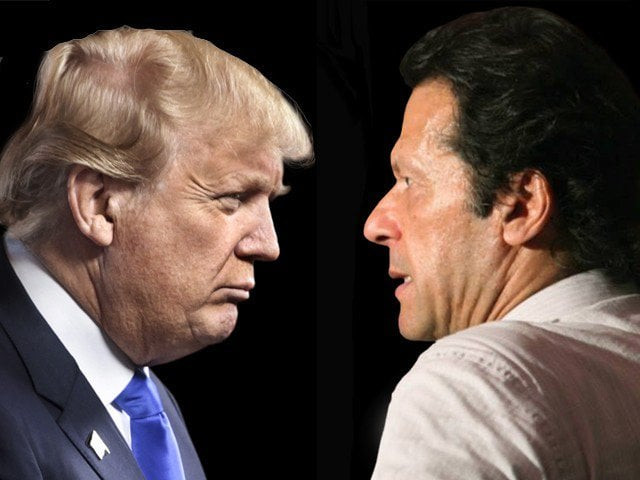Complex Pakistan-US relationship
Furthermore, the stringent requirements of FATF have also compelled the government to reassess its past policies

PHOTO: FILE
What we are experiencing is that as the US continues to foster deeper cooperation with India in the economic and strategic fields, its pressure on Pakistan — and China — continues to mount. Secretary of State Mike Pompeo’s visit later this month to India is meant for further energising the strong economic, military and political ties between the two countries. The US is eyeing the attractive Indian defence market. It is expected that Mr Pompeo would promote the sale of the stealth design F-35 Fighter Aircraft and other latest defence equipment. Interestingly, sixty-five to seventy per cent of the Indian defence systems in its inventory are of Russian origin and due for modernisation and upgradation. Mr Pompeo’s visit also aims at fostering closer cooperation between South Eastern nations — Sri Lanka, Japan and South Korea — to counter Beijing’s growing influence in the South China Sea.
What are the measures and policy adjustments, if any, Pakistan has to undertake in view of this emerging geo-strategic picture?
Pakistan though has few options, essentially because of its dire economic situation and dependence on the IMF and global financial institutions.
The present US policy toward Pakistan is in sharp contrast to the early period of its relations when it was the main beneficiary of its economic and military assistance and was considered to be a major ally against the former Soviet Union. Not building its own economy and relying on foreign assistance has brought Pakistan to this stage of dependence.
In the present, it is Afghanistan, radicals and the military’s role in regional stability that determine the US-Pakistan relations. Keeping this in view, Pakistan has already taken several measures to allay international concerns. However, as doubts remain in Washington and in the Western world that more has to be done, it would be in our interest to do a serious reappraisal as to what extent it would be possible to recalibrate foreign and security policies.
In view of the fragile nature of the Afghan government, it would not be able to hold on for long without the strong political and military support by the US. The focus of the current US policy revolves round pushing Pakistan military to ensure that the Taliban leadership agrees to a negotiated settlement and ceases its support for the Taliban. President Trump is wary of prolonging the stay of the US troops in Afghanistan but realises that a hasty withdrawal would lead to an intensification of the civil war and threaten long-term security interests of the US. In this scenario, Pakistan would be the worst sufferer. Having deep interest in the stability of Afghanistan-Pakistan, the military has been facilitating the peace process by putting pressure on the Taliban leadership to engage with the Afghan government. There are, however, limits to the extent that it can persuade their leadership. Besides, it has to protect Pakistan’s long-term interests that may not necessarily converge with those of the US. These considerations demand astute diplomacy and a fine balancing act. The military leadership cannot afford to push the Taliban leadership too hard as they are the only party on which it retains a level of influence and that too is gradually lessening.
Despite Pakistan’s categorical policy decisions to ban the terrorist organisations like Lashkar-e-Tayaba (LeT), Jaish-e-Muhammad (JeM) and others, doubts remain in the US and certain other countries that these organisations are still finding space in Pakistan and operating freely. The government has taken definitive steps against these organisations, but perception persists that this has been done only cosmetically to satisfy the US and the Western world. It is reflected from their frequent statements and casts a shadow on Pakistan’s credibility as this would be in our national interest to remove this misapprehension.
Furthermore, the stringent requirements of the Financial Action Task Force (FATF) have also compelled the government to reassess its past policies towards non-state actors as it realises that any laxity in compliance could drag us in the black zone.
Prime Minister Narendra Modi, in particular, has fully exploited the presumed presence of these groups and has made it the basis of his hard policy of isolating Pakistan. The other disturbing aspect is that India masks its gross human rights abuses in Kashmir by diverting attention on Pakistan. Similarly, Washington finds in Pakistan an alibi for its failures and difficulties in Afghanistan.
These hostile policies notwithstanding, a robust debate in Pakistan on the utility of non-state actors in a changed security environment is necessary. This process would certainly pose a challenge but has to be undertaken when the frayed relations between the government and the opposition subside. A more transparent approach towards these groups would prevent India and the US from building diplomatic pressure on Pakistan. It will also allay any misgivings that these groups pose a threat to our nuclear assets.
Pakistan’s development in the missile or nuclear field is subjected to criticism despite the defensive nature of these systems. In sharp contrast, India’s build-up of nuclear and missile forces is encouraged by Washington and facilitated through Israel to counter the growing Chinese military power.
Pakistan faces tough choices for internal consolidation and improving relations with the US and other major powers. For this, we have to regain national confidence and build on the potential and capability of our people. This would be possible if political parties and state institutions realise the growing dangers around us and stay away from narrow pursuits.
Published in The Express Tribune, June 19th, 2019.
Like Opinion & Editorial on Facebook, follow @ETOpEd on Twitter to receive all updates on all our daily pieces.














COMMENTS
Comments are moderated and generally will be posted if they are on-topic and not abusive.
For more information, please see our Comments FAQ